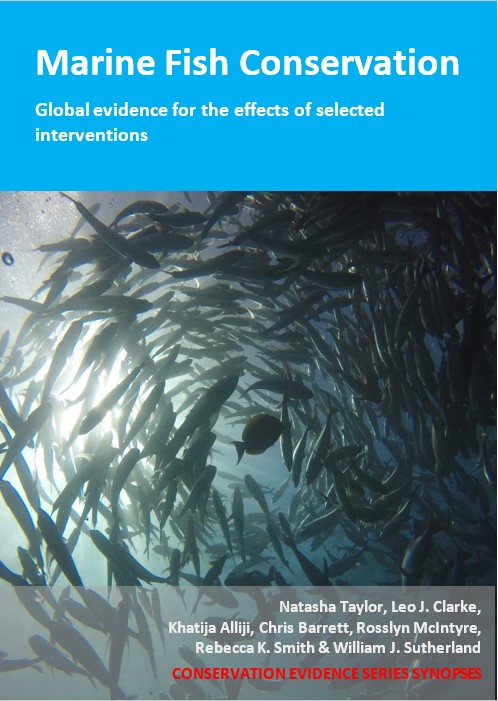Implement multi-year or long-term management strategies
-
Overall effectiveness category Awaiting assessment
-
Number of studies: 1
View assessment score
Hide assessment score
How is the evidence assessed?
-
Effectiveness
not assessed -
Certainty
not assessed -
Harms
not assessed
Supporting evidence from individual studies
A site comparison study in 2005–2012 of 11 marine areas worldwide (Bundy et al. 2017) found that commercial fisheries managed with multi-year or long-term management plans in place, in addition to a range of other management measures and governance (those with higher “management effectiveness” and quality of governance) had better overall ecological status (sustainable stocks, non-declining exploited species) compared to those typically without long-term objectives (and with “lower effectiveness” and governance). For 11 ecosystems, the ecological status, defined by indicators for sustainable stocks, non-declining exploited species and ecosystem status (health), was greater in ecosystems where management and governance measures for fish stocks were ranked as being high, for example where long-term management plans were in place, in addition to biological reference points being used in assessments, illegal and unreported fishing addressed, and with greater harvesting sector participation, compared with those with lower rankings (data reported as model outputs/statistical results). Data were collected for a total of 27 global ecosystems as part of a large research programme (“IndiSeas” – Indicators for the Seas). Fisheries management effectiveness and governance quality rankings were derived from survey questionnaires completed by 61 experts (fisheries managers and scientists involved in management advice in each of the ecosystems), covering aspects such as management measures/plans, level of fisheries assessments and participation of the harvesting sector. Survey results were then analysed against eight ecological (derived from other IndiSeas outputs) and socio-economic indicators for 11 of the ecosystems, derived (see paper for details of ecosystems, management effectiveness and governance indicators, survey questions, data sources and full methods).
Study and other actions tested
Where has this evidence come from?
List of journals searched by synopsis
All the journals searched for all synopses
This Action forms part of the Action Synopsis:
Marine Fish Conservation





)_2023.JPG)














